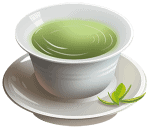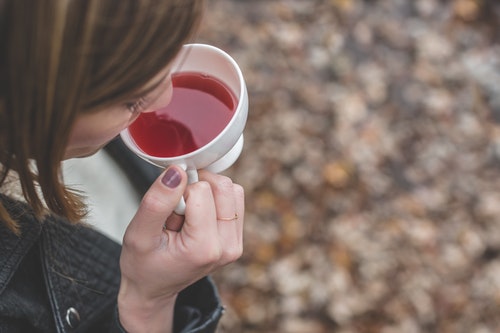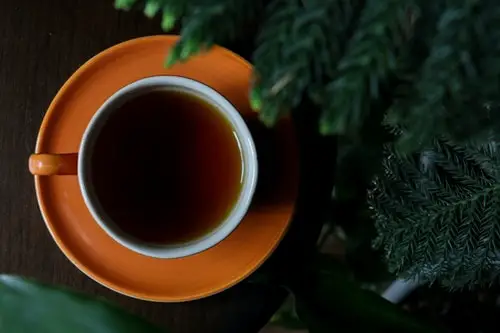
Certain teas can be used to help clear up the symptoms of allergies, but you need to know which ones to use!
Many of my clients do attempt to control their allergy symptoms through diet and it is my job to help them. I often recommend tea for allergies, but there is a catch – not all brews can be used in a beneficial manner!
In this post, I show you which teas for allergies are best and give you an idea of how they can bring you relief as well. Let’s begin!
Contents
Want a short answer? Then, yes, tea is good for allergies.
This isn’t the whole story, though. After all, not all teas can help to relieve allergies.
Thus, you are going to need to do more reading to understand what tea you should be sipping on for the best results.
Both true teas and herbal teas can relieve the symptoms of your allergies.
However, as mentioned, not all types of true and herbal teas can give you the relief you’re looking for.
There is also the fact that different types of teas have different mechanisms. Therefore, they alleviate the symptoms in a variety of ways.

To begin with, let’s take a look at the true teas that can help with allergies.
There is some evidence to show that caffeine in black tea can help individuals suffering from asthma.
In particular, black tea helps to open up the airways and improve lung function. The tea seems to continue to help hours after it is taken as well.
Since the symptoms of allergies include difficulty with breathing, it stands to reason that black tea can help allergy sufferers too.
Related Articles
Loose, Bagged, Organic: How to Select Good Black Tea?
It should be noted that there is only evidence for one particular type of green tea for allergies.
This is the Benifuuki Japanese green tea. Understand, this type of tea has a higher level of EGCG and methylated catechins.
These two components tend to have anti-allergic effects, protecting sufferers from various symptoms.
This kind of green tea is especially good for those who have a cedar pollen allergy.
Related Articles
Forty Shades Of Green: The Best Green Tea Brands on the Market
Now, let’s move onto the best herbal tea for pollen allergies and similar types of hay fever.
One of the reasons for the inflammatory reaction of the immune system is due to histamines.
Well, ginger helps to reduce the production of histamine. This stops symptoms such as sneezing, congestions, and watering eyes from occurring.
The spiciness of this tea can also be rather soothing for sore throats.
Related Articles
Brews for Your Burden: The Best Tea for Sore Throat Relief
A Brew for Bed: A Guide to Tea for Sleep
Made from a South African bush, rooibos is gaining popularity among herbal tea consumers.
Like ginger, rooibos tea also acts as an antihistamine, preventing inflammation from continuing in the body.
It is used rather commonly used to treat hay fever.
In addition to boasting anti-inflammatory properties, licorice tea also acts as an anti-allergic drink.
Due to this, it is incredibly effective at combatting various aspects of hay fever and many different kinds of respiratory problems.
It is important to be careful when consuming licorice tea. For one thing, you should keep the dose to a minimum and drink only about a cup a day.
Also, avoid drinking licorice tea for an extended period.
Avoid licorice tea if you are pregnant, breastfeeding, have a heart condition, or a hormone-related medical condition.

Turmeric is quite the powerhouse when it comes to preventing a significant number of medical conditions.
However, one of the most notable properties of turmeric is that it can counteract inflammation and irritation caused by allergens.
Thus, you should feel relief from a wide variety of allergy symptoms with the help of some turmeric tea.
Now, if you were going on a walk and came across stinging nettle, you may go to great lengths to avoid these painful leaves.
Interestingly enough, stinging nettle tea can help your allergies.
This is because, when brewed, it produces antihistamines. These can reduce nasal inflammation along with many other symptoms associated with hay fever.
Butterbur tea is especially useful in treating hay fever, particularly those caused by pollen.
It works to reduce daytime and nighttime symptoms. The tea is great for clearing up the nasal passages and to help people to breathe more easily.
In fact, the positive impact of butterbur tea is on par with medications that are traditionally prescribed for allergies.
Unlike these medications, there are far fewer side effects with the tea. For one thing, you won’t experience any kind of drowsiness or disorientation.
There isn’t any specific evidence to show that peppermint tea can help with allergy symptoms. Nevertheless, the aroma and flavor of this tea have been known to ease congestion.
Thus, it can be consumed as a soothing drink and may help alleviate some of the stuffiness in your nose.
Related Articles
A Brew for Bed: A Guide to Tea for Sleep
There are a couple of different ways you can brew herbal teas.
You can find fresh or dried leaves, stems, and flowers to add to your tea. Or, you can buy readymade “loose leaf” tea or tea bags.
It is always a good idea to opt for the readymade version when dealing with herbs or plants that you aren't entirely familiar with.
Herbal tea brands carefully process the ingredients so that they are safe to consume. What's more, they give you clear indications of the proper dosage as well.
Thus, you may be less likely to encounter side effects when opting for the readymade versions.

Before moving on to the teas, you first need to understand what causes allergy symptoms. In turn, you will find it easier to grasp why certain teas can help with these issues.
Essentially, allergies transpire when your immune system reacts to a foreign substance entering the body. This could be pollen, dander, bee venom, or food.
For the purpose of this article, though, we will be focusing on allergic rhinitis (hay fever) that is typically caused by pollen, dander, and other airborne particles.
As a response to this foreign body, your immune system produces antibodies that can cause inflammation in your sinuses, airways, and skin.
The most common symptoms of hay fever include:
So, there you have it – the best teas for allergies. The next time you feel the sniffles coming on, you know exactly what to do.
